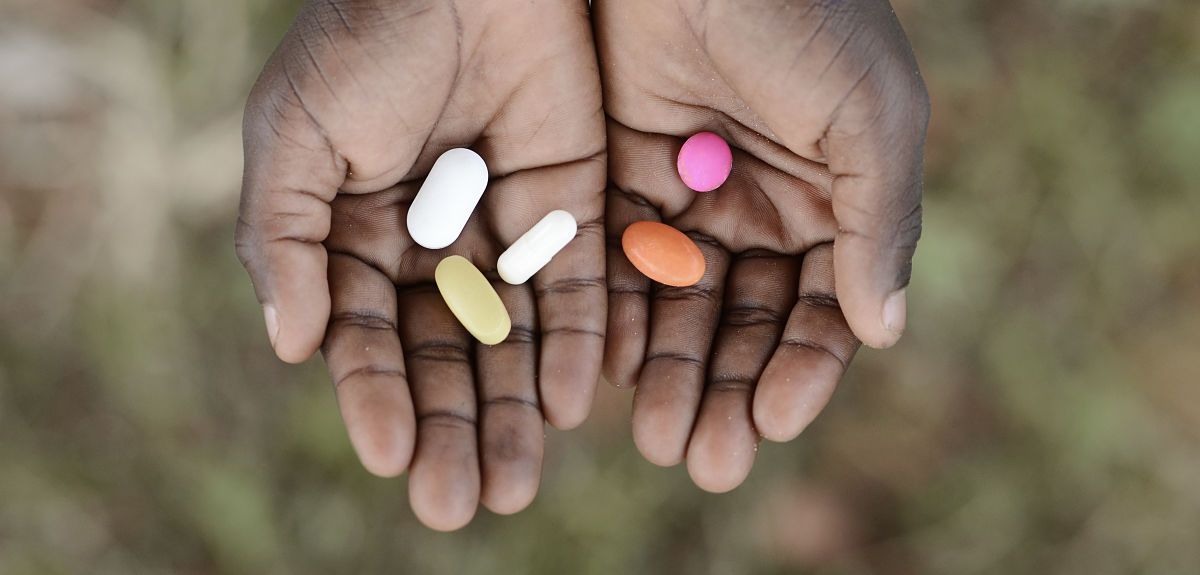
Image credit: Riccardo Mayer/ Shutterstock
How can we tackle one of the biggest threats to global health - antimicrobial resistance?
The World Health Organisation has declared that this week is World Antibiotic Awareness Week. Yet, resistance to antibiotics is only part of the wider issue of antimicrobial resistance (AMR). Leading medical journal The Lancet has launched a series examining whether the global fight against AMR is under threat, with contributions from various researchers at Oxford University. Anne Whitehouse, from WWARN – the WorldWide Antimalarial Resistance Network – explains more.
Are we doing enough to tackle the broader issue of resistance to a range of antimicrobial medicines that are used to kill and prevent the spread of bacteria, fungi and parasites?
Anne Whitehouse, WorldWide Antimalarial Resistance Network
It’s not so long ago that people with cold and flu symptoms were commonly found asking their GPs for antibiotics, despite the fact that antibiotics fight bacteria and are no use for colds and flu which are caused by viruses. In fact, antibiotics may do more harm than good and misuse results in resistance – when bacteria change and antibiotics stop working – meaning that these valuable medicines are no longer available to us when we really need them.
Huge strides have been made in informing the public about the consequences of taking antibiotics unnecessarily, but how much do we really know about the drivers of antibiotic resistance? Why is resistance so important, and are we doing enough to tackle the broader issue of resistance to a range of antimicrobial medicines that are used to kill and prevent the spread of bacteria, fungi and parasites?
A major new series, published in The Lancet today suggests that the global fight against antimicrobial resistance could be under threat unless we improve the evidence base for policies to control resistance and address the related areas of human and animal health and ecosystems.
Oxford authors' contributions in the Lancet anti-microbial resistance series
Understanding the mechanisms and drivers of antimicrobial resistance
International cooperation to improve access to and sustain effectiveness of antimicrobials
Prof Philippe Guérin, director of the WorldWide Antimalarial Resistance Network (WWARN), based in the Centre for Tropical Medicine & Global Health at the University of Oxford, is co-author of a paper which investigates the mechanisms and drivers of antimicrobial resistance. He says: ‘The emergence of antimicrobial resistance is a natural evolutionary response to antimicrobial exposure, which requires further investigation and a coordinated approach. There are many complex and interlinking factors that are driving the prevalence of antimicrobial resistant organisms that are not yet fully understood.
‘It is clear that we need to take urgent action to combat the threat to human health. In the case of malaria, the significant steps that have been taken to reduce the burden of the disease are threatened by resistance to existing antimalarial medicines. Artemisinin derivatives, the cornerstone of malaria treatment, are now under threat as resistance to this family of drugs has emerged and spread across Southeast Asia in less than a decade. If drug resistance spreads from Asia to the African sub-continent, or emerges in Africa independently as we’ve seen several times before, millions of lives will be at risk.’
In the case of malaria, the significant steps that have been taken to reduce the burden of the disease are threatened by resistance to existing antimalarial medicines.
Prof Philippe Guérin, director of the WorldWide Antimalarial Resistance Network
The authors also suggest that current global efforts to combat antimicrobial resistance are too modest, and need to be coordinated by a new UN-level coordinating body. There should be renewed focus on understanding which policies will work, and an international treaty to enforce their adoption.There are no new antimalarials that are ready for distribution, and so prolonging the efficacy of antimalarial medicines is critical to reducing the number of people dying from the disease. Similarly, no major new types of antibiotics have been developed over the last 30 years, and so the authors suggest that the current incentives for pharmaceutical companies to develop new antimicrobials should be radically overhauled.
The World Health Organization (WHO) launched its first report on antimicrobial resistance last year and is drawing attention to the problem through initiatives such as World Antibiotic Awareness Week, taking place from 16-22 November. According to the WHO, antibiotic resistance is a serious worldwide threat to public health that is no longer a prediction for the future; it’s happening right now, across the world, and is compromising our ability to treat infectious diseases and undermining many advances in health and medicine.
The Review on Antimicrobial Resistance, chaired by Jim O’Neill, also stressed the urgency of the problem, predicting 10 million deaths attributable to antimicrobial resistance every year by 2050, if appropriate action isn’t taken.
Of course, no-one is suggesting that antimicrobial medicines should be denied to those who need them. In fact, access to antimicrobial drugs remains a major issue, with more people dying every year from a lack of access to antimicrobials than those who die from infection by resistant organisms.
So, whilst we should be focusing on reducing over-prescription of antimicrobial medicines, we also need to further our understanding of resistance, conserve existing antimicrobials, support the development of new ones, and make sure that antimicrobial drugs are distributed to the people who really need them.